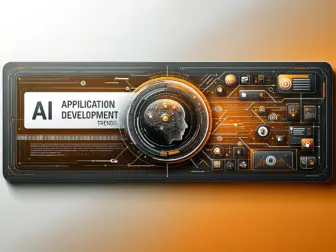Tag - future of AI development
The Future of AI Development: Advancements, Challenges, and Implications
Artificial Intelligence (AI) has become a ubiquitous and transformative technology that is shaping the future of various industries and sectors. From healthcare and finance to retail and manufacturing, AI has the potential to revolutionize how businesses operate and how individuals interact with technology. As AI continues to evolve and mature, the future of AI development holds great promise and potential, but also presents challenges and implications that must be carefully considered.
Advancements in AI development have been driven by a combination of factors, including breakthroughs in machine learning, deep learning, natural language processing, and computer vision. These advancements have enabled AI systems to perform complex tasks, such as analyzing large datasets, recognizing patterns, predicting outcomes, and making decisions autonomously. As a result, AI has been increasingly integrated into a wide range of applications, from virtual assistants and chatbots to autonomous vehicles and medical diagnostics.
One of the key challenges facing AI development is the ethical and societal implications of AI technology. As AI systems become more sophisticated and autonomous, questions arise about bias, privacy, transparency, accountability, and the impact of AI on jobs and society as a whole. Developers, policymakers, and stakeholders must work together to address these challenges and ensure that AI technologies are developed and deployed in a responsible and ethical manner.
Another challenge in AI development is the need for greater collaboration and interdisciplinary research. AI is a multidisciplinary field that requires expertise in computer science, mathematics, statistics, psychology, neuroscience, and other disciplines. By fostering collaboration between researchers, practitioners, and policymakers, the AI community can accelerate the development of AI technologies and address complex challenges more effectively.
Looking ahead, the future of AI development holds immense potential for innovation and disruption across various industries. AI technologies are expected to continue advancing rapidly, leading to the development of more intelligent, autonomous, and adaptive systems. In healthcare, AI is being used to improve diagnostics, personalize treatment plans, and enhance patient care. In finance, AI is transforming fraud detection, risk assessment, and investment strategies. In retail, AI is revolutionizing customer service, inventory management, and marketing campaigns.
As AI technologies become more pervasive and integrated into everyday life, it is crucial for developers, policymakers, and society at large to address the challenges and implications of AI development. By fostering collaboration, ethical standards, transparency, and accountability, we can ensure that AI technologies are developed and deployed in a way that benefits society and promotes the common good.
In conclusion, the future of AI development is bright and promising, but also presents challenges and implications that must be carefully considered. By advancing AI technologies responsibly, ethically, and collaboratively, we can harness the power of AI to drive innovation, improve lives, and create a more sustainable and equitable future for all.
